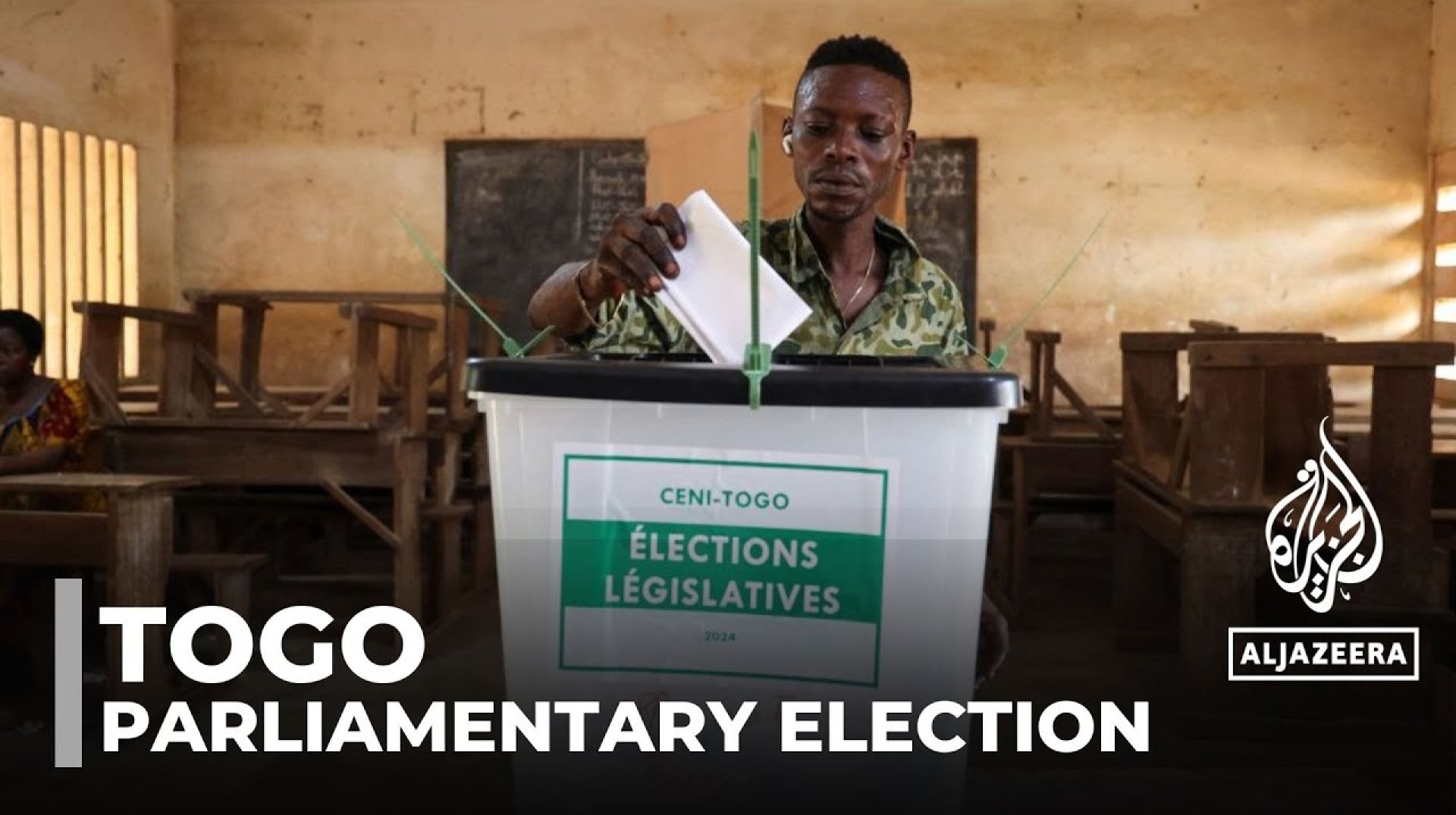
Togo’s parliamentary election: Why all eyes are on President Gnassingbe
Al Jazeera English
0Subscribers
Togo’s parliamentary election: Why all eyes are on President Gnassingbe
Voters in Togo have gone to the polls in legislative elections on Monday, after a divisive change to the country’s constitution. Opponents say it allows the President to extend his family’s decades-long grip on power.
The Togolese government isn’t allowing journalists to enter the country to report on the election.
Al Jazeera’s Nicolas…
source
Reviews
0 %
User Score
0 ratingsRate This
Sharing
Tags
#AfricaNewsAl JazeeraAl Jazeera Englishal jazeera liveal jazeera videoaljazeeraaljazeera Englishaljazeera latestaljazeera livealjazeera live newsTogoTogo constitutional reformsTogo dynastic systemtogo latest newsTogo opposition protestsTogo parliamentary electionsTogo parliamentary systemTogo political tensionstogo president faure gnassingbeTogo presidential systemTogo public anger
45 Related Posts

















